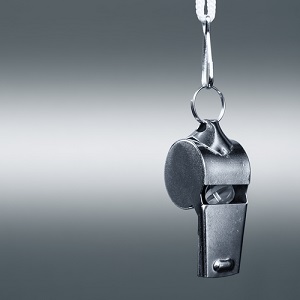EU, UK, and Canadian Whistleblowers Receive New or Enhanced Protections

Three recent international developments have occurred that will further enable and encourage whistleblowers to report alleged wrongdoing, and provide guidance for employers and organizations to respond to such complaints.
The European Union formally adopted a whistleblower protection directive on September 25, 2019, requiring organizations with 50 or more workers to establish internal reporting channels over the next 2 to 4 years, depending on the organization’s size. The Directive recognizes that people who work for or are in work-related contact with an organization are well-positioned to detect threats or harm to the public interest arising from an organization’s activities. The Directive is aimed at establishing a unified approach across Member States to reports of potential wrongdoing, because “insufficient protection in one Member State negatively impacts the functioning of Union policies not only in that Member State, but also in other Member States and in the Union as a whole.”
The Directive’s application is broad, covering, inter alia, public procurement, financial services, product and transport safety, and public health. A whistleblower is protected from retaliation, and Member States are to ensure whistleblowers have access to comprehensive and independent information and advice, effective assistance from competent authorities, legal aid in criminal and in cross-border civil proceedings, and other financial assistance and support measures, including psychological support.
Regarding whistleblower anonymity, the Directive leaves open to Member States the discretion to decide whether they are required to respond to anonymous reports. However, people who anonymously reported or who made anonymous public disclosures falling within the scope of the Directive should be allowed continued anonymity and protection from retaliation.
Additionally, UK whistleblower protections received a boost in a November 27, 2019, Supreme Court decision (Royal Mail Group Ltd v Jhuti).
The case was brought by an employee (Jhuti) who was wrongfully terminated for inadequate performance where, in reality, Jhuti had previously made a protected disclosure, raising concerns regarding the organization’s potential infringement of regulatory guidance. The supervisor to whom this was reported—and who stood to receive a financial benefit from the regulation’s disregard—subsequently crafted a false narrative to paint Jhuti’s performance as unsatisfactory. This narrative, in the form of a series of emails to HR, was provided by HR to another supervisor, who was tasked with determining whether Jhuti should be fired. The supervisor, unaware of the whistleblower complaint, accepted the original supervisor’s critical emails as valid, and Jhuti was fired.
The Court held that if an employee—in this case, a whistleblower—is fired for an invented reason which hides the true reason for dismissal, the original, hidden reason will prevail. Applying this decision, employers will be required to dig deeper and investigate prior to an employee’s dismissal, to confirm that there are no other underlying reasons—here, a whistleblower complaint—that would have spurred the initial move toward dismissal.
And finally, British Columbia’s Public Interest Disclosure Act (“PIDA”) went into effect on December 1, 2019. PIDA provides a statutory mandate for the Ombudsperson to investigate reports of wrongdoing made by current or former employees of government ministries and offices of the legislature. It can be applied retroactively, to include activity which occurred prior to the law taking effect.
Information may be reported internally to a designated officer, or externally to the Ombudsperson. Whistleblowers are protected against employer reprisal and are permitted to make anonymous disclosures. Their anonymity will be protected “to the extent possible,” and will only be disclosed to the extent necessary to further the investigation.
The establishment of the EU whistleblower directive, the application of UK employment law in favor of protecting a whistleblower, and the creation of PIDA by the BC Ombudsperson’s office (the last remaining Canadian province to enact standalone whistleblower protections), all illustrate that the international community continues to actively embrace and expand whistleblower rights and protections.
READ MORE:
- International Whistleblowers
- I Think I Have A Whistleblower Case
- Our Constantine Cannon Whistleblower Team
- Whistleblower Protection Laws
Tagged in: Government Programs Fraud, International Whistleblowers, Whistleblower Case, Whistleblower Eligibility, Whistleblower Protection Laws,